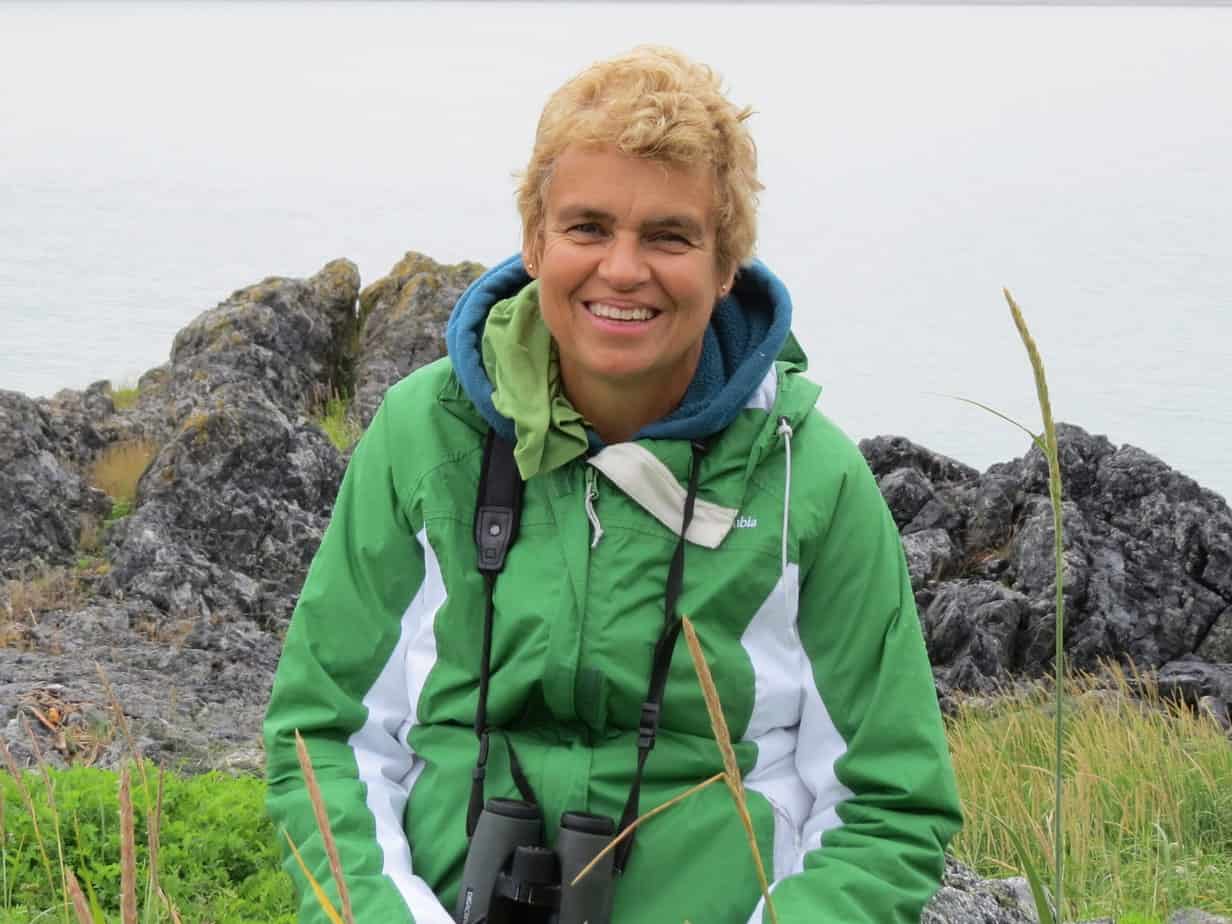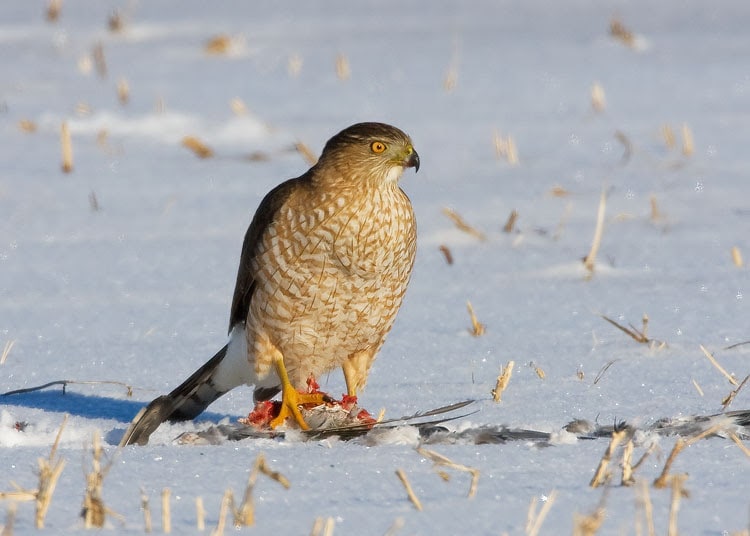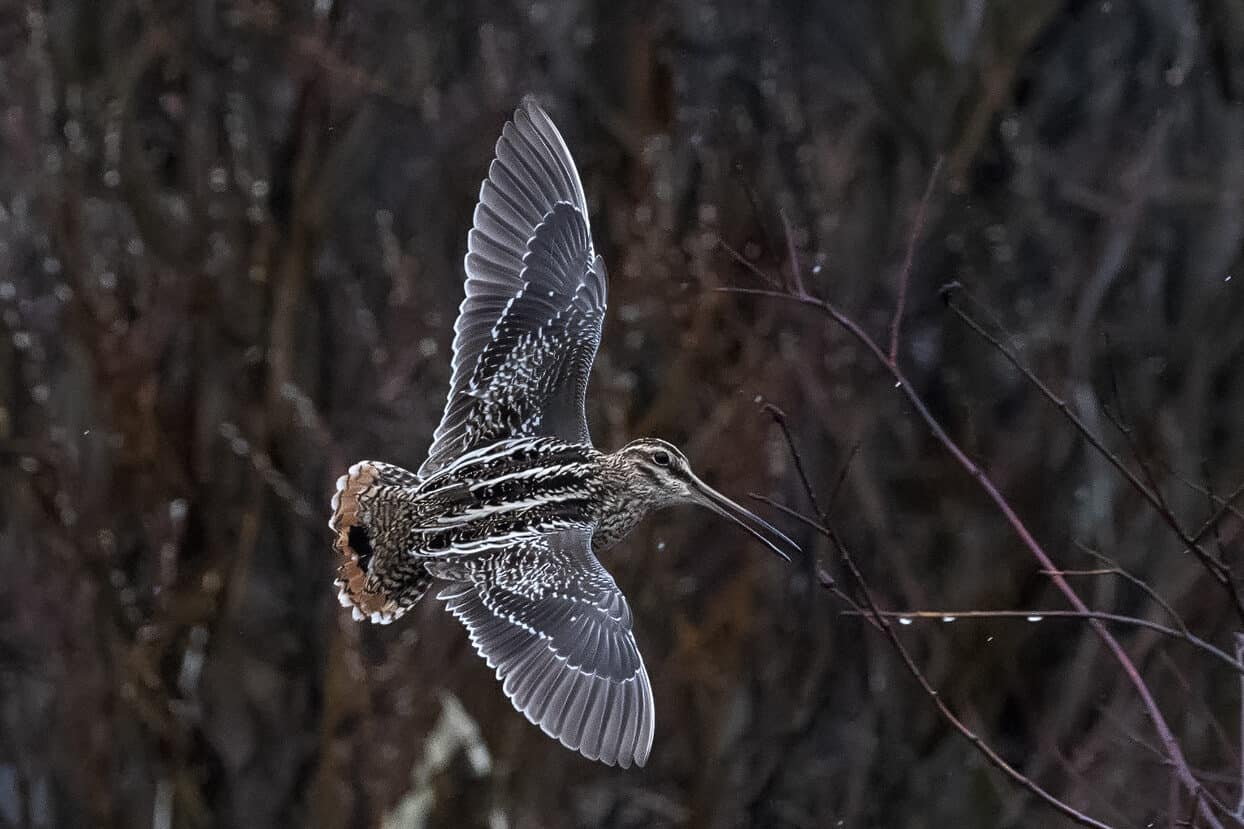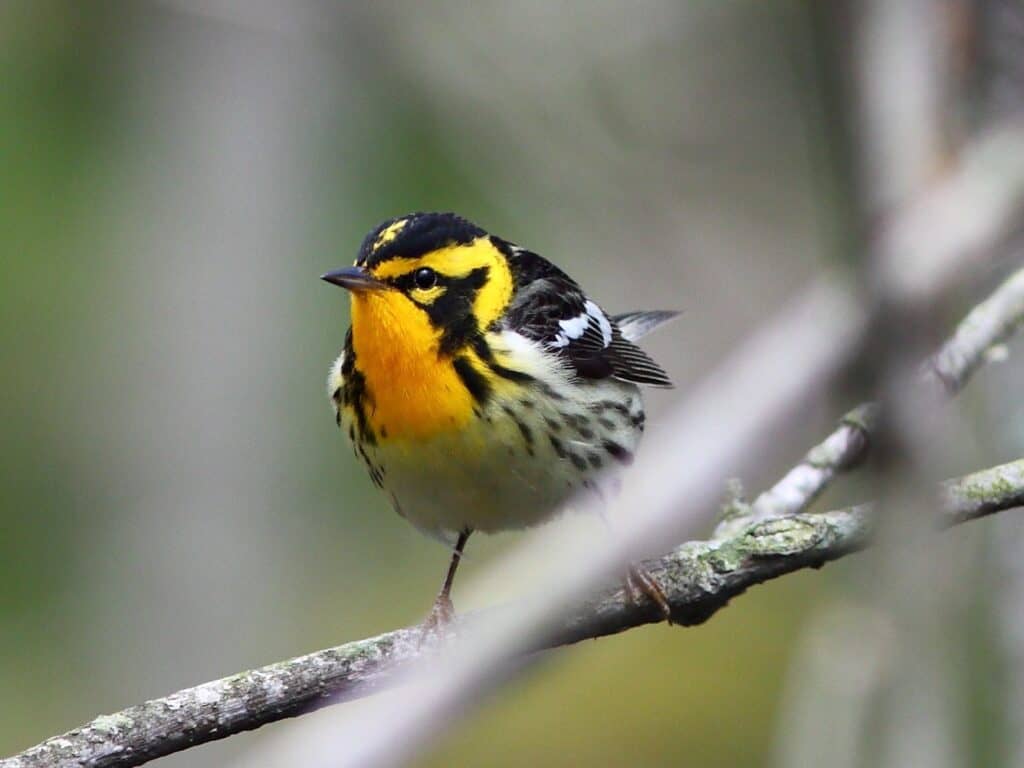Trent University professor Erica Nol played a leadership role in the decision to rename many of North America’s birds
Peterborough Examiner – January 5, 2024 – by Drew Monkman
A hot topic among birders and nature enthusiasts right now is the recent decision to rename many of North America’s birds. On November 1, the American Ornithological Society (AOS) pledged to change all English bird names that honour people. “There is power in a name, and some English bird names have associations with the past that continue to be exclusionary and harmful today,” said AOS President Colleen Handel. There are about 80 species that breed in Canada and the U.S. with honorific or eponymous names. The goal is that the new names will focus attention entirely on important characteristics of the birds themselves.
The renaming will affect a number of species found in the Kawarthas such as Cooper’s Hawk, Wilson’s Snipe, Bonaparte’s Gull, Swainson’s Thrush, Wilson’s Warbler, Blackburnian Warbler, Lincoln’s Sparrow and more. There’s another local connection to this story, as well. In 2022, the AOS created the “Ad Hoc English Bird Names Committee” and asked Trent University biology professor Erica Nol to be one of the three co-chairs. It is this committee that made the recommendation to change the names.
Background to bird names
Every bird species – and every other living thing – has two names: a standardized scientific name used by scientists around the world and a common name that changes from one language and sometimes even from one region of a country to the next. Common names in North America, however, have been standardized by the AOS.
A bird’s name is important. It should help us identify and communicate about the species. It should also facilitate a connection with the bird, engage as many people as possible and maybe even add an element of excitement.
For hundreds of years, birds were often given possessive common names to honour someone. One example is “Cooper’s Hawk”. It’s named after naturalist William Cooper. Its scientific name of “Accipiter cooperii” is also eponymous. However, the AOS will not be changing any of the scientific names, nor does it have the jurisdiction to do so.
But, here’s the rub. Many of the people for whom birds are named did or said things that by today’s standards are inacceptable. Some committed atrocities or even kept slaves. Bird names honoring individuals such as these can be offensive to people today, creating a barrier to feeling welcome in the birding community and to even enjoying birding. Renaming birds with offensive names is not new. In 2000, a duck with a name that was clearly offensive to indigenous people was renamed the long-tailed duck. You can Google the old name.
Another example is McCown’s Longspur which was recently renamed Thick-billed Longspur. John McCown was a Confederate general who fought to defend slavery and even went to war against native Americans. The name change happened when racial injustice was front page news and thousands of people were protesting the murder of George Floyd. The on-going movement for greater equity, diversity and inclusion in society led to a debate in the ornithological community about what to do with all these bird eponyms.
In 2020, a grassroots group called Bird Names for Birds was formed. Its goal was to create names that reflect a bird’s own unique qualities such as its appearance, behaviour or the habitat in which it’s found. The movement gathered momentum in 2021 and the AOS was paying attention. They formed a special ad hoc committee called the English Bird Names Committee, chaired by Dr. Nol. It met regularly for about two years.
The committee acknowledged that some individuals for whom birds were named made valuable contributions to ornithology. This is especially so for species like Wilson’s Snipe. Alexander Wilson is widely regarded as the father of American ornithology. However, they ultimately decided that a case-by-case evaluation of whether an honorific name should be retained or replaced would be fraught with disagreement and cause unnecessary distractions. It was agreed to just change them all.
Convincing the AOS Council
On the committee’s recommendation, the AOS Council committed to changing all eponymous names; to establishing a new committee with a diverse representation of individuals – not just scientists – to oversee the assignment of new English names; and to actively involve the public in the process. “It felt like a real accomplishment when the recommendation to change all the names was finally accepted, because there were council members who were initially somewhat dubious,” said Nol. “I ended up making quite an emotional plea because we’d worked so hard and had come to the recommendations organically with no predetermined agenda. Then, Troy Peters, a committee member of colour who does race relations for Detroit Audubon, really summed up things eloquently through a lens of equity and his experience as a black man. It was a very powerful moment. Afterwards, Council members who I hardly knew came up and gave me a big hug. They really felt that this was the right thing to do,” she said.
The name-changing process is going to take time. Starting this year, the AOS will launch a pilot project to create an “open, inclusive, and scientifically rigorous” process, starting with about 10 species. If you’re interested in participating, you’ll soon be able to do so online.
I thought it would be fun to a look at some suggestions for new names that are making the rounds on social media. Here’s a few that I find quite exciting: Winnowing Snipe instead of Wilson’s Snipe (winnowing refers to the sound made by the snipe’s outer tail feathers during its courtship display), Boreal Thrush instead of Swainson’s Thrush, Buff-breasted Sparrow instead of Lincoln’s Sparrow, and Black-capped Warbler instead of Wilson’s Warbler.
Reaction
Not everyone agrees with changing the names of birds. Opposition has been especially strong among some older birders. There have also been grumblings from conservative media that the names are being changed for the sake of political correctness. For the most part, however, the decision by the AOS has been well received. Well-known bird guide authors David Sibley and Kenn Kaufman, for example, are both in full agreement. “It was very gratifying to see both of them writing (about the decision) so positively and eloquently,” said Nol.
I agree. Eponyms are simply bad names. They don’t tell you anything useful about the bird, nor do they facilitate understanding of birds or biodiversity. At a time when bird populations are plummeting – North American has lost one-third of its birds since 1970 – we should be doing all we can to enhance the appeal of birding. For many people, birding is one of the first steps in becoming a conservationist.
It’s not even necessary to present moral arguments. Names are much more useful when they’re descriptive in some way and maybe even make the species more alluring. For a new birder, wouldn’t it be more exciting and satisfying to see a Flame-faced Warbler (a suggested new name) instead of a Blackburnian Warbler (referring to Anna Blackburne, an 18th-century English naturalist)? And, why stop with honorific names. Many other common names are pretty awful too, beginning with names that include a city or state like Tennessee Warbler. Really? This species nests in the boreal forest and overwinters in Latin America.
Learning new names shouldn’t be difficult. Bird identification apps like Merlin Bird ID will probably show both names – the old and the new. As for field guides, I’ll just write the new name in the book beside the old one. What’s more, people use apps like Merlin much more than books these days anyway.
And, no, the new names won’t please everyone. Most names can only capture one element of a bird’s biology or ecology. For example, Backyard Hawk has been suggested as a new name for Cooper’s Hawk. Some people love it and find the name an accurate description of where you often see this species; others, however, hate the name.
It’s going to be fascinating to see how this all plays out. I, for one, look forward to learning and using the new names. Just as long as public input doesn’t go off the rails and we end up with names like Owly McOwlface!



